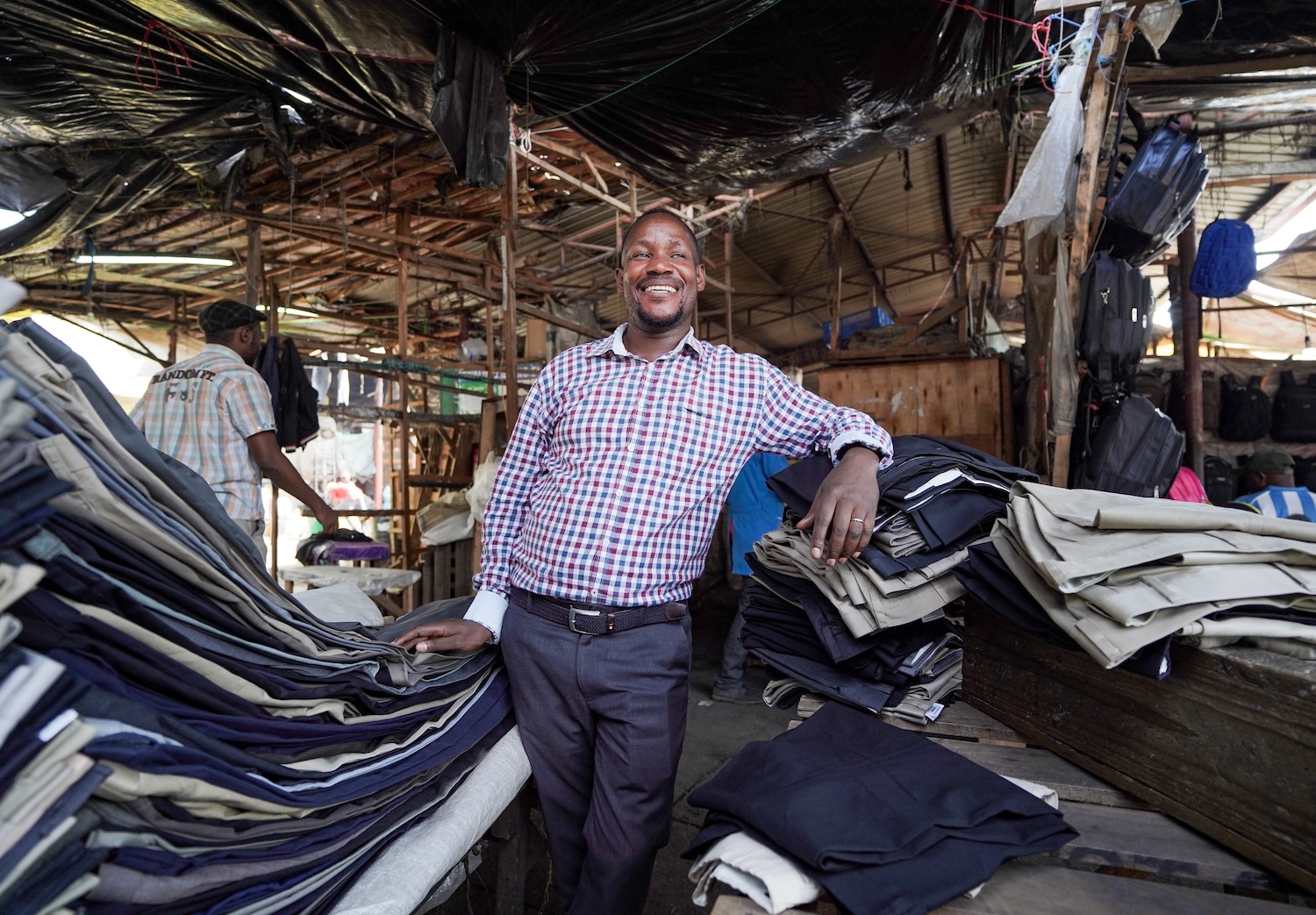By Amy Slaughter, Senior Advisor at RefugePoint, and Kari Jorgensen Diener, Executive Director at Refugee Self-Reliance Initiative
As governments and humanitarians convene in Geneva for the second quadrennial Global Refugee Forum (GRF) in the latest attempt to negotiate more equitable responsibility-sharing for the world’s refugees as stipulated by the Global Compact for Refugees adopted by UN member states in 2018, one of the biggest items on the table will be enhancing refugees’ self-reliance.
Responsibility-sharing is typically understood as agreements among governments to defray the costs of hosting refugees and to provide more legal pathways for relocation to less-impacted countries. These measures are critical as 75% of the world’s refugees are hosted in low and middle income countries. These countries tend also to be the most vulnerable to climate change, meaning that we should expect to see the numbers they host grow considerably in both absolute and relative terms.
However, with protracted conflicts preventing most refugees from returning to their home countries and legal relocation pathways reaching only a tiny minority, insufficient attention has been placed on developing viable self-reliance opportunities in host countries. Indeed, though refugee participation will be higher than ever at this year’s GRF, refugees have yet to be engaged as partners in the concept of responsibility-sharing. The productive capacity of refugees in most contexts is severely curtailed by national and local laws preventing formal employment, business and land ownership, fishing and agricultural activities, inclusion in financial systems, access to credit and other legal barriers.
Yet refugees tell us time and again that their greatest wish is to be independent, to be able to provide for themselves and their families, to give back to their communities and host countries, and not be reliant on fickle humanitarian aid. What is more, in countries where refugees are allowed to work and establish businesses, studies have shown that they ultimately are net positive contributors to the local economy.
Many experts and advocates have long called for a paradigm shift away from the antiquated humanitarian system that delivers vital emergency relief predicated on the notion of conflicts ending and refugees returning home (both of which are increasingly elusive) but lacks sustainable exit strategies from aid dependence. Several converging trends now require that we get this right before the scale of forced displacement surges further as a result of climate change entangled with political strife and conflict.
One of these trends is the population boom in many developing regions. A recent NYT article charted both the opportunities and challenges presented by the “youthquake” on the African continent, quoting investor and author Aubrey Hruby as predicting that “[a]fter climate change, Africa’s jobs crisis will be a defining challenge of our era.” Every year 20 million youth come onto the job market in Africa, far exceeding the absorption capacity of the formal employment sector.
Entrepreneurship must be a key part of the answer to these challenges for displaced and non-displaced populations alike. It also represents an enormous economic growth opportunity for countries that develop policies that empower refugees and promote entrepreneurship, in the process advancing the social cohesion of refugees and their hosts.
In Kenya, whose government is expected to announce a new plan at the GRF for the gradual socio-economic inclusion of the refugees it hosts, refugee entrepreneurship is flourishing. Despite the difficulty in obtaining formal work authorization, refugees are able to register small businesses that often allow them to support their families and send their children to school. Some businesses have grown and become job creators for other refugees and even Kenyans. Still others operate in the green economy creating cleaner cooking fuel and upcycling waste.
A refugee entrepreneur in Kenya shared, “before I started my business I was going in the neighborhood begging. I had bad relationships with my neighbors and my family. Nobody was respecting me. Now it’s the other way around. Now people come to me for help. When the neighbors know your children are not eating well, they look at you in a certain manner. When your children are well-fed they respect you as a family and as a mother.”
View this post on Instagram
A multistakeholder pledge on economic inclusion and social protection was announced yesterday at the GRF, drawing commitments from governments and other sectors to advance the self-reliance of refugees and their host communities. It advocates for inclusive law and policy to enable the untapped resource of refugee talent to be harnessed. Self-reliance models must become a normative feature of the humanitarian toolbox, ensuring that the value of the approximately $50 billion spent each year on international aid is maximized with sustainable strategies that build the income-generating capacity of both displaced and host populations.
At its highest level, the progress of the Global Compact for Refugees will be measured by the degree to which responsibility for refugees is more equitably shared. Let us not forget that many refugees stand ready to support themselves if only permitted to do so. Self-reliance might therefore be the biggest overlooked burden-sharing opportunity of all.
